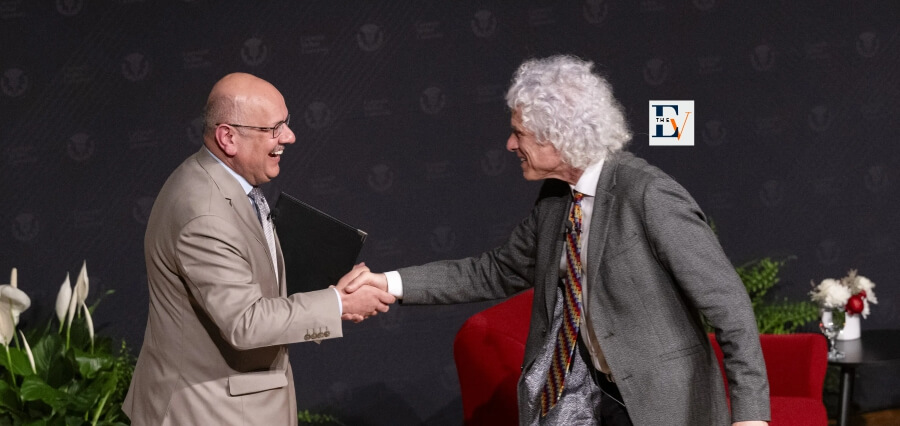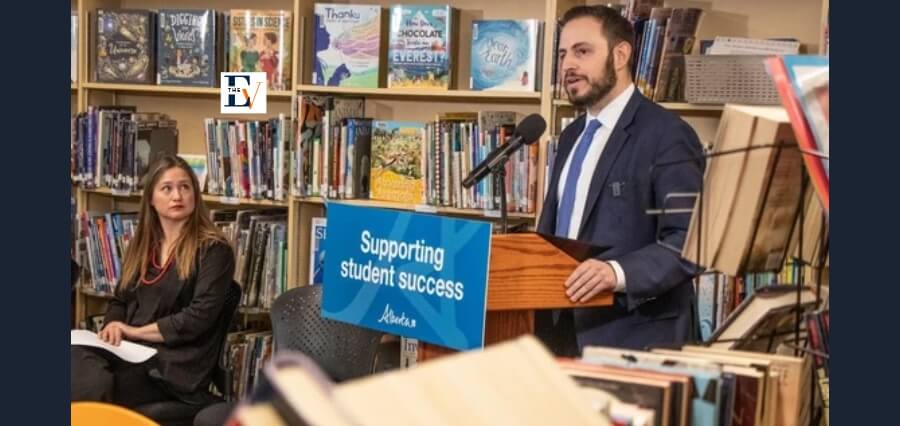Harvard University professor and experimental cognitive psychologist Steven Pinker visited Carnegie Mellon University on April 17 as part of the second installment of the President’s Lecture Series. Pinker, a prolific contributor to the New York Times, author of 12 books and numerous articles, a two-time Pulitzer Prize finalist, and recognized as one of Foreign Policy’s Top 100 Public Intellectuals, engaged in a discussion held in the McConomy Auditorium on the first floor of the Cohon University Center.
The lecture, titled “Human Rationality and Academic Freedom,” focused on topics such as human intuition, rationality, academic freedom, and strategies to enhance public trust in universities. Following the lecture, Pinker and CMU President Farnam Jahanian delved into these subjects further.
The President’s Lecture Series, an extension of the University Lecture Series, invites distinguished experts from both public and private sectors to engage directly with President Jahanian and the CMU community on significant societal issues. This series aims to provide opportunities for students, staff, and faculty to interact with thought leaders, pose questions, and foster interdisciplinary learning.
“The importance of these conversations is immense,” President Jahanian said in his opening remarks. “CMU’s mission is to create and leverage knowledge to benefit society, while at the same time we’re developing the next generation of scholars and thought leaders and practitioners. In an increasingly divided world, fulfilling this mission requires us to take on the challenging task of considering various perspectives and even opposing viewpoints. In fact, the work of supporting and modeling these conversations is precisely the role that higher education can and should play in this world.”
The event commenced with a brief lecture by Pinker, delving into the concept of human rationality, various types of logical fallacies, and their common occurrences. Pinker then transitioned into discussing the pivotal role universities play as promoters of rationality, emphasizing the importance of safeguarding their objectivity and credibility.
After the lecture, Jahanian invited Pinker to join him for a fireside chat, where they explored how universities have historically fostered credibility and the strategies they can employ to continue doing so. The conversation between Jahanian and Pinker also delved into the topic of academic freedom and addressed ways to navigate the perceived tension between freedom of speech and inclusivity.
“I think what we need to do is create an environment such that members of our community can come together, have civil discourse, talk, disagree and hopefully over time build some bridges of understanding to overcome some of these complex issues,” Jahanian said.
In addition, Pinker talked about his earlier travels to CMU and how, as a historically notable school in his profession, it inspired him to apply for graduate school in the 1970s, even though he decided not to go. “It had the reputation, even then, as one of the sources and hothouses of cognitive psychology.”






